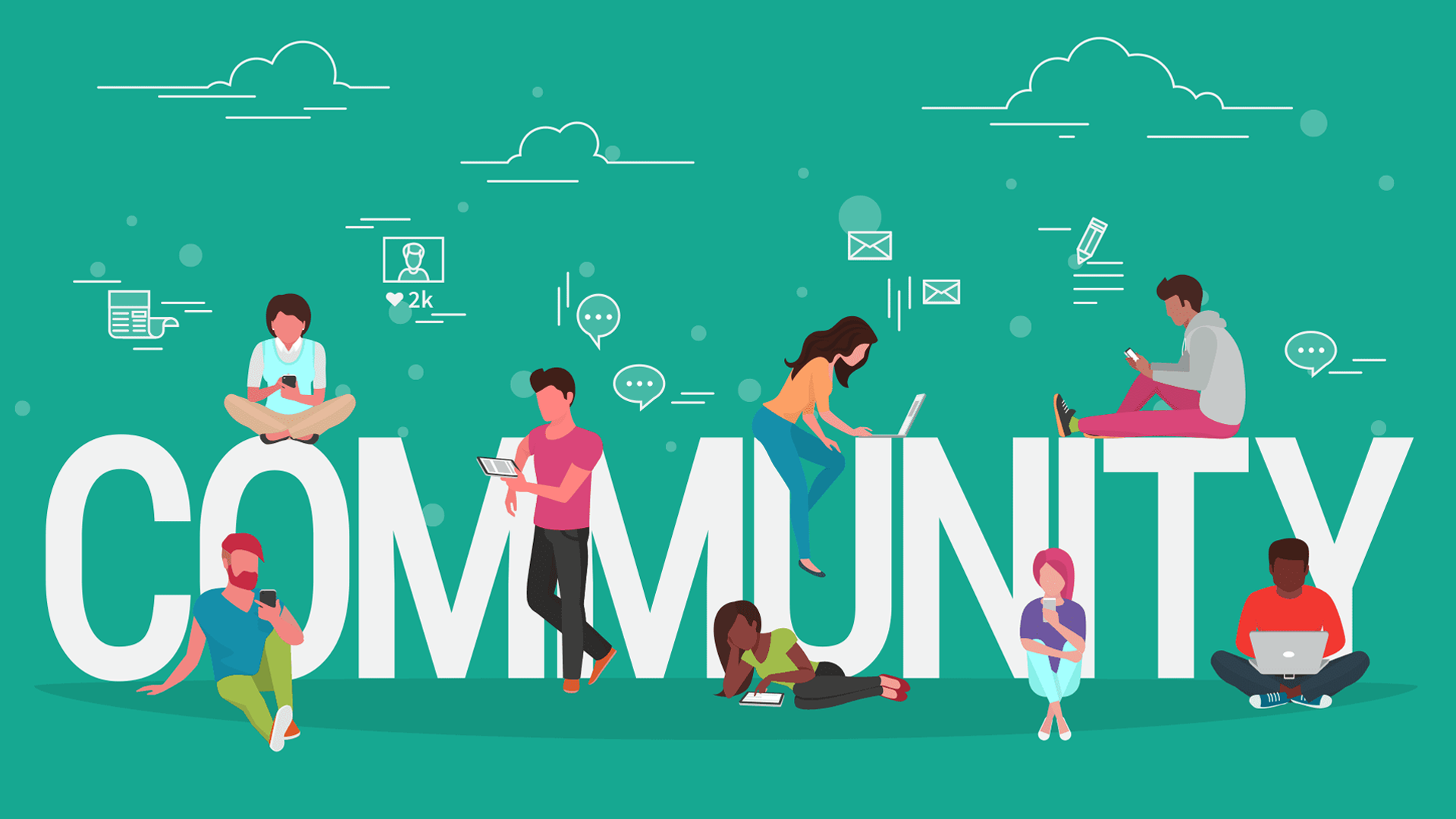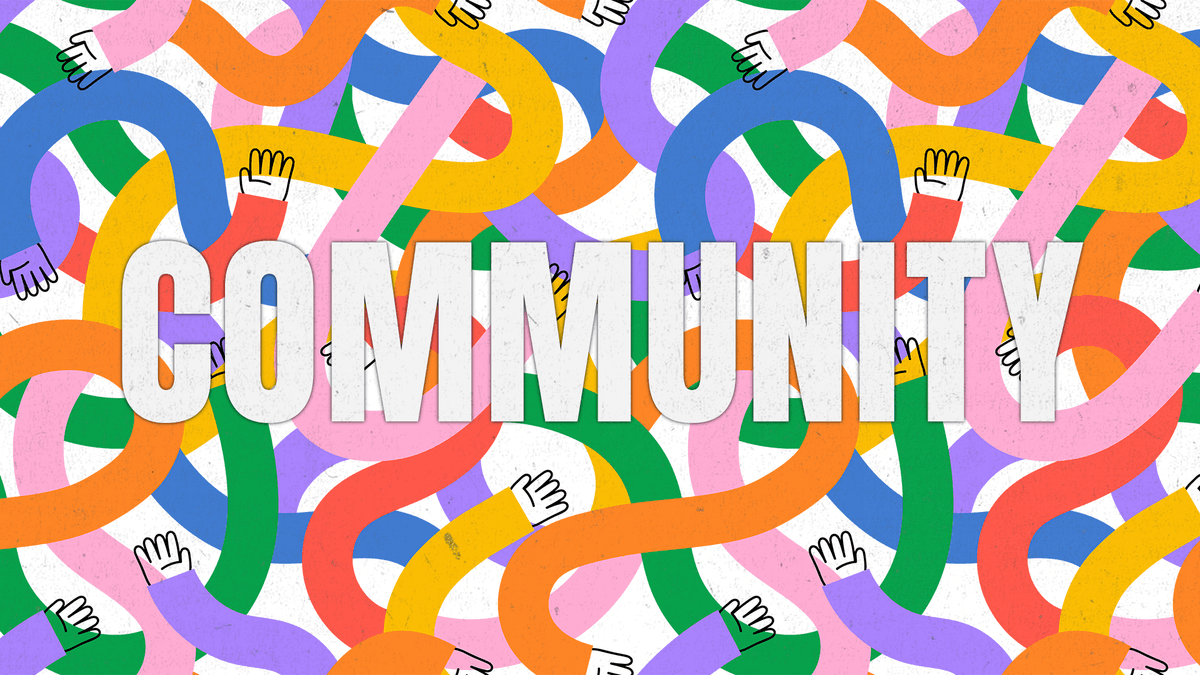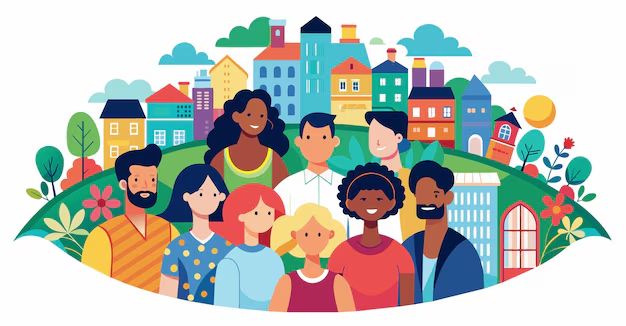What Is Community?

Communities give us a sense of identity, belonging, and support.
The Dive
Think about all the different groups you’re part of every day. Your family, your school, your neighborhood, or even a club or sports team. Each of these groups is a type of community. Communities aren’t just about being in the same place; they’re about people sharing something meaningful, like values, interests, or goals.
Every community has rules or expectations that help guide how people interact. In school, it might be raising your hand before speaking. In your neighborhood, it could be helping out a neighbor. These shared understandings keep everyone connected and make the community work smoothly.
One of the best parts of being in a community is the sense of belonging it gives you. When your team wins a championship, you feel proud. When your town gets criticized, you might feel a bit defensive. That’s because communities become part of who we are, they shape our identity.
But communities aren’t always perfect. They can sometimes create 'in-groups' and 'out-groups,' deciding who belongs and who doesn’t. While this can build pride, it can also lead to exclusion or unfair treatment.
Communities also play a big role in shaping values. From your family, you might learn what it means to respect others, or from your school, you might learn the importance of honesty and fairness. These lessons influence how members decide what is 'right' or 'wrong.'
There are many different kinds of communities. Rural communities are usually small and close-knit, suburban ones are often centered on schools and neighborhoods, and urban communities are larger and more diverse. And thanks to technology, people can now belong to virtual communities online, too.
Being part of a community brings lots of benefits: emotional support when life is hard, opportunities to learn from others, chances to celebrate victories together, and networks that help with school, jobs, or even hobbies.
But communities also depend on their members. They thrive when people contribute—whether it’s helping a classmate, volunteering at a local event, or simply being there to support a friend. The health of a community isn’t just about what you get from it, but also what you give to it.
Why It Matters
Communities don’t just happen, they're built through effort, care, and participation. Strong communities give us a sense of belonging, provide support in hard times, and create spaces where people can grow and thrive together. But they also rely on us to contribute, listen, and work toward fairness. By learning how communities are formed and strengthened, we recognize our power to shape groups that are inclusive, resilient, and compassionate. Building communities isn’t only about improving our own lives, it’s about creating a foundation where everyone has the chance to succeed.
?
What communities do you belong to, and how do they shape your daily life?
How do rules in your school community differ from rules in your family community?
Can you think of a time when being part of a community gave you support?
Why do communities sometimes exclude people, and what are the consequences?
How does being part of multiple communities (like school, sports, and online groups) affect your identity?
Dig Deeper
An introduction to rural, suburban, and urban communities, showing how each is unique but important.
A reflection on how belonging to a community brings joy, meaning, and strength to people’s lives.
A practical guide on how to create and sustain communities through rituals, rhythms, and rules.
Related

What Is Community?
Community is more than just a place on a map—it’s people, relationships, and the daily actions that tie our lives together.

Identity & Experience: How Our Stories Shape Our View of the World
Our personal experiences shape how we see the world. By understanding identity and perspective, we learn how to celebrate differences, grow empathy, and make better decisions together.

Divisive Rhetoric
History shows us that words are never just words—they can build bridges or burn them, unite communities or divide them. How we use language shapes the future of our society.
Further Reading
Stay curious!
